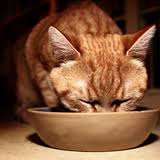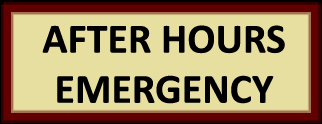 I have heard that as cats get older, they need different food than when they were younger. Is that true, and if so, why?
I have heard that as cats get older, they need different food than when they were younger. Is that true, and if so, why?
The principle of feeding different-aged animals differently is called “life-stage feeding,” and it is a fairly straightforward concept. After all, we know that we must feed infant children differently than growing teenagers, and seniors have different nutritional needs than 30-somethings.
When does my cat become “old,” and why is this important?
"Cats 11 to 14 years of age are classified as “seniors,” and cats 15 years of age and older are considered “geriatric.”
Although there is no specific age at which a cat becomes “old,” cats 11 to 14 years of age are classified as “seniors,” and cats 15 years of age and older are considered “geriatric.” During these life stages, cats undergo physical and mental changes that can affect their quality of life. Some of these changes include:

- Difficulty grooming
- Loss of muscle mass
- Musculoskeletal pain from osteoarthritis (OA)
- Reduced digestive function or digestive difficulties
- Weight gain or loss
- Worsening vision and/or hearing
What should I feed my senior cat?
Like so many things in medicine (not just nutrition), there is not a single right answer to this question. Nutritional science is advancing rapidly, but we still have much to learn. The goals in choosing an appropriate food for a senior or geriatric cat include:
- Maintaining optimal function of the organ systems, including the immune system
- Maintaining optimal weight and body condition score (BCS)
- Managing chronic degenerative diseases nutritionally whenever possible
"Your veterinarian is the best resource for helping you choosea food that meets the needs of your senior or geriatric cat."
Your veterinarian is the best resource for helping you choose a food that meets the needs of your senior or geriatric cat. At The Riverdale Veterinary Group, we encourage an exam every 6 months for all pets, but this becomes particularly important in middle age, senior, and geriatric cats when certain common feline diseases first show up. A routine health check blood panel is an extremely helpful tool your veterinarian can use to help discover age - related conditions early on before they become apparent to you. Very often, management of these diseases can be accomplished with diet changes and supplements alone, if the condition is discovered early on, before the cat gets noticeaby sick.
What are some health conditions that could influence food choices for a senior cat?
-
Periodontal (dental) disease is very common in cats. Once cats develop periodontal disease, it can interfere with their ability to eat and get adequate nutrition. This is because the disease can cause mouth pain, loose teeth, and tooth loss. Preventing dental disease early in life helps cats later in life. One way to prevent it, in addition to daily home dental care, is to feed a dental diet.

Older cats also often develop chronic renal (kidney) disease. Specific nutritional formulations can help support the function of aging and failing kidneys. Transitioning cats with this disease to a renal-support diet will help maintain their quality of life.
We now know that approximately 20% of cats of all ages have osteoarthritis in one or more joints. However, this percentage is higher among older cats; one study suggests that more than 90% of cats over 10 years of age have arthritis !! We can support joint function and help these cats be more comfortable by feeding a food created specifically for arthritic cats and or adding suplements that strengthen tissue in the affected joints.
Hyperthyroidism (an increase in thyroid hormone production caused by a noncancerous thyroid tumor) is a relatively common condition in older cats. This disease can now be managed in many cats through the use of a very specific nutritional formulation that takes the place of the medication we previously relied on.
Can I just read food labels to choose the best food for my older cat?
"Because all proteins are not createdequal, pet food labels are useful only up to a point."
Cats are called “obligate carnivores” because they must have high-quality, animal-based protein in their diet. Because all proteins are not created equal, pet food labels are useful only up to a point. Also, if your cat has any health-related issues, it is important that we choose a food that is easy to digest and that can help improve those issues. Unfortunately, there is no “label definition” for what constitutes a nutritional profile for a senior or geriatric cat. With recent and ongoing nutritional breakthroughs, however, we may eventually have one.
In summary, a routine physical examination, health check blood testing, and a consultation with your veterinarian is the best way to choose the correct diet for your senior or geriatric cat. Use your veterinary healthcare team as the excellent resource they are!
